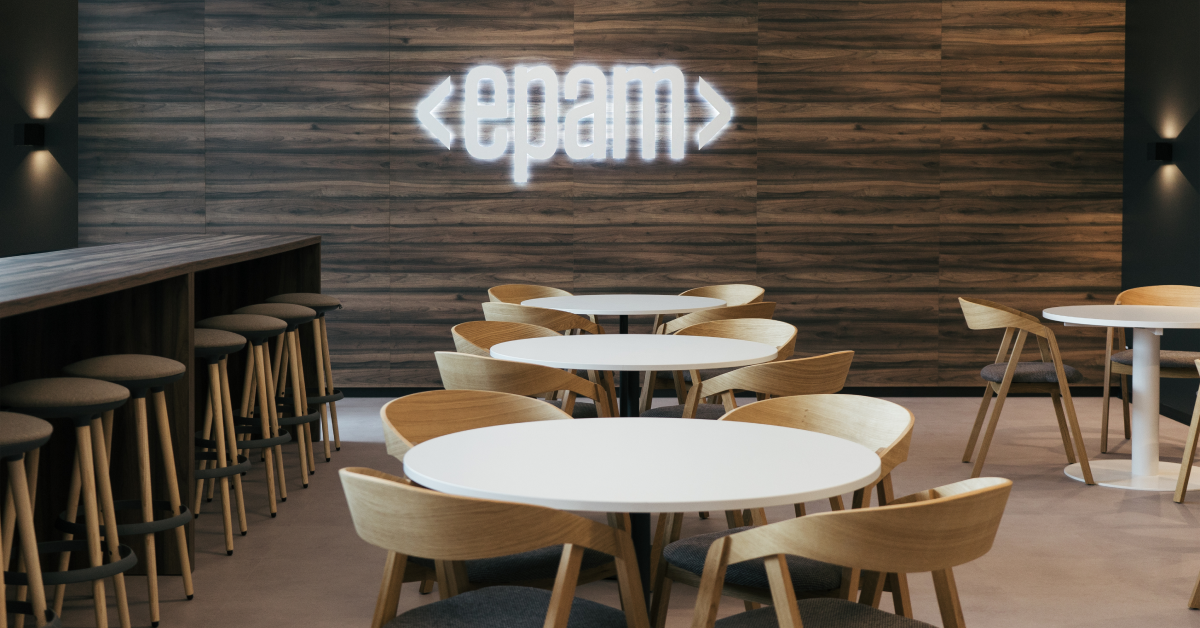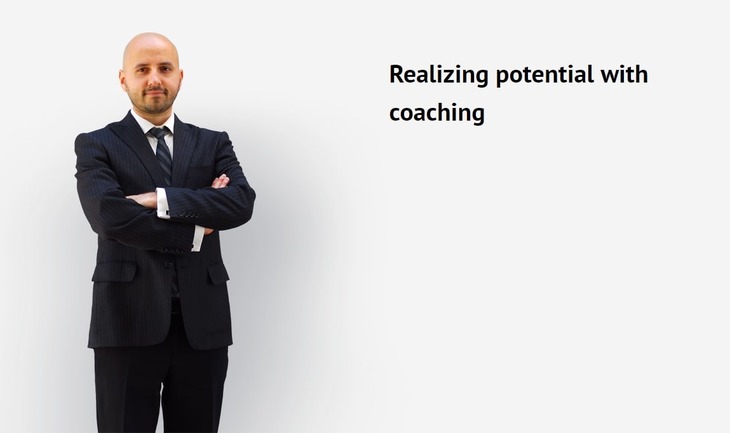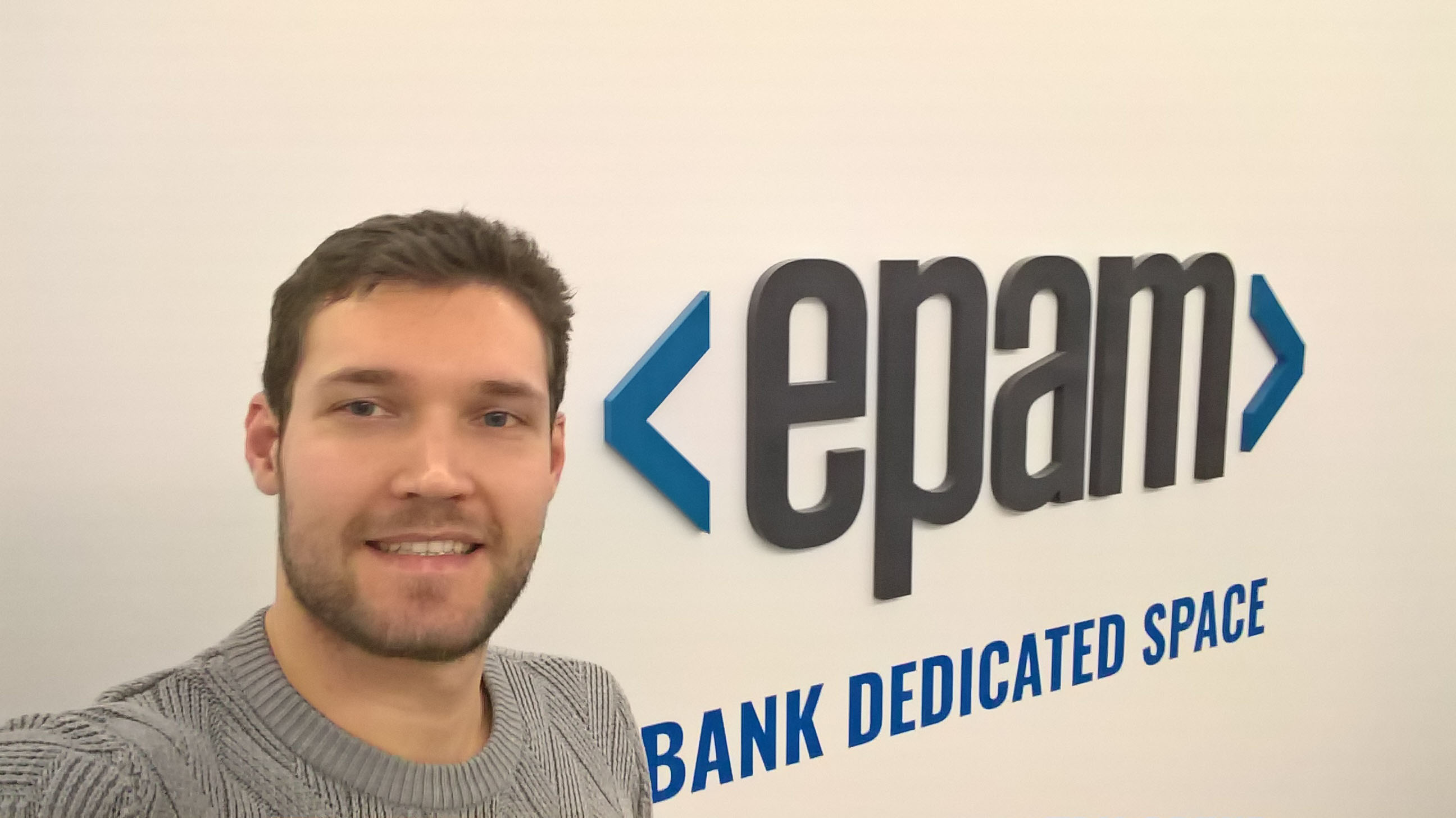10 Questions to Kristina Erofeeva. Family Relocation to EPAM Prague
Kristina Erofeeva, Lead Business Analyst, relocated to EPAM Prague two years ago with her husband and two children. We sat down with her to learn about her experience working in IT in Czech Republic, which was recently voted the best country for women working abroad in the latest Expats insider report by Forbes.
Kristina, you’ve been working in IT for 10 years. What made you consider relocating from Saint Petersburg to EPAM Prague?
There are two reasons why I decided to relocate. First, my parents had moved to the suburbs of Prague eight years ago. Initially, I didn’t have a plan to move to Prague. However, a recruiter approached me, and the job title and role were a perfect match. That was the second reason why I decided to relocate.
I majored in economics and finance, which helps me in my role in EPAM. Most of the projects here are complicated and challenging. They require a lot of financial knowledge, so it’s a perfect place for professionals like me to grow. I had other more pragmatic reasons for relocation: salary, climate, transportation, my parent being local. I guess it all just made sense, so I decided to move.
Had you ever traveled to Prague before your relocation? How do you like it here so far?
I had been in Prague as a tourist, and now I enjoy living in Prague. People are nice. I feel at home here, even after just two years. The climate is perfect, especially compared to St. Petersburg. Prague is clean, beautiful and a nice place to live. We are renting a flat right now and I’m happy with it.
Was it hard to make relocation arrangements?
The visa application process takes some time. There was a mistake in our documents and the Czech Ministry was silent for nine months. But then the situation was resolved.
Every country has specific regulations and rules, so you need to be prepared for that. At the end of the day, the most important thing is that even though the visa application is time consuming, it doesn’t really affect you. If you submitted all the necessary paperwork in time, there’s nothing to worry about. Stay positive and patient and everything will be fine.
Do you have any advice for people who are thinking of relocating to EPAM Prague?
Have some money set aside. The more money you have, the more comfortable your first year will be. It really helps when you buy medical insurance, rent a flat, buy a car, etc.
Did you have any concerns about relocating your family?
My husband and I have always looked at raising our two sons as a team effort. From the very beginning, we were both working professionals. As the kids grow up and no longer have physical dependency on me, my husband and I both share the responsibilities equally. We coordinate which one of us takes our kids back and forth from school, prepares lunch, stays with them when they are ill, etc. We have some areas of individual responsibility – usually I handle doctor’s appointments.
Because we are an IT family, my husband and I have flexible hours and can work from home if needed. My kids are fond of technology as well. The ability to code is an important part of literacy in our modern society. My sons attended eKids weekend classes where they work with Scratch at EPAM Prague. During this course, my sons not only learn to code, but also develop soft skills and make new friends.
One of the most important decisions expat families face is what school and/or kindergarten to pick. While most expats choose to send their kids to private international schools, some opt for a Czech public or private school. What did you and your husband decide?
There are two main options in Prague for schools. First, you can send your kids to public kindergarten or public school. These schools are free of charge, even for children of temporary residents like expats. In general, public schools is taught in Czech. It’s basically a six-month integration program and that’s it.
As two working parents, we couldn’t afford that option, both from a financial and resource perspective. We felt that we needed to spend more time than just six months helping our kids and our family adapt to a new language and culture. Both my husband and I were trying to adapt to new jobs, which is stressful, and then come home to stressed kids who are also trying to adapt. You really don’t have that much energy to help your kids. To avoid this stress, my husband and I chose a second option – private school and kindergarten. There is a wide range of international schools to choose from in the city. We chose the Czech-Russian private school VĚDA.
Did it work well for your family?
My choice and my personal way to ensure a smooth adaptation process is private schooling. That works for me and that’s my experience. But that doesn’t mean it will work for everyone else.
As I see it, it’s better to avoid unnecessary stress. So, if I can provide a healthy, less-stressed environment, why not? Our kids are learning in a more comfortable manner. On the other hand, it’s just my perspective from two parents who are working full-time. If the second parent is not working, it might not work for a family as private schools are expensive.
How many languages do your kids speak?
My kids learn and speak three languages: Russian, Czech and English. All their teachers are native speakers. The boys are learning Czech slower than the kids who go to public Czech schools. Usually kids start to speak Czech in three months – it took our sons a year and a half to start speaking Czech. But that’s fine with me.
What’s important is that our youngest son was rather aggressive towards the Czech language. He declined to speak Czech after relocation. Now that block is gone. He got through it in his own time. We are active members of a Russian-speaking community in order to preserve the Russian language and culture as well.
Did you learn Czech before relocating?
The relocation process usually takes two-three months, so I decided to concentrate on family, work and relocation paperwork and not worry about the language. In my opinion, it was a waste of resources, considering I had a heavy workload and family. You can learn Czech in Prague. It’s nice to know the basics, it helps, but it’s not mandatory.
During the first year, I had a lot on my hands – adjusting to a new country and new job, a new way of setting up my household. I just could not fit in regular language courses. I had no time for that. I was learning Czech by reading and via Duolingo. But during my second year, I had a challenge: my youngest son had to go through surgery. We chose a Czech hospital and Czech-speaking doctors, so I had an intense motivation to learn as much Czech as possible.
I used free online resources, videos, books, etc. I took a two-month course, which was based in the office. I managed to learn Czech well enough and communicate with the doctors smoothly. I continue to learn Czech now. It’s nice to have Czech language courses and clubs at the office and I try to fit them into my schedule.
Expats tend to think that Czech Republic is one of the best countries for work-life balance. How do you, as a working EPAM mom, manage to keep work-life balance?
It’s about proper logistics and useful devices. My kids are at school from 9.00 to 17.00. Sometimes, I even have difficulty picking up my kids at 17.00, especially because often they attend excursions, visit museums, have lots of great activities and friends. I come to the office rather early at 8.30 and work until 16.30. That schedule helps me keep a good balance.
Thanks to technology, knowing the well-being and whereabouts of your loved ones isn’t a challenge anymore. All working mothers can easily stay connected with their children while they are working at the office. If I miss my kids, I can call them on the phone or even through video during my lunch break and focus on work without any stress or tension. This lets my children know that I’m close by and helps me get through a challenging day at work.
Making time to do things I love is also my secret to maintain a healthy work-life balance. I take dance classes twice a week and play squash. Part of balance for me is feeling fulfilled in my various roles.
We hope you enjoyed reading about Kristina’s thoughts on family relocation, adaptation and work-life balance at EPAM Prague. Stay tuned for our next interviews with EPAMers.
Useful information: 10 best countries for women to work.
-
Media Relations
Dominika Hruskova
Senior Marketing Coordinator
-
 News
NewsEPAM Czech Republic moves to Skanska's Port7
We are opening a new chapter with a move to Port7 in Holešovice, an award-winning visionary office building.
-
 News
NewsCareer opportunities at EPAM Czech Republic
-
 News
News10 Questions For Our Coach, Oleksandr Martynov
-
News
When I Grow Up, I Want To Be An EPAMer
-

Relocation with EPAM: From Togliatti to Prague
Relocation interview.